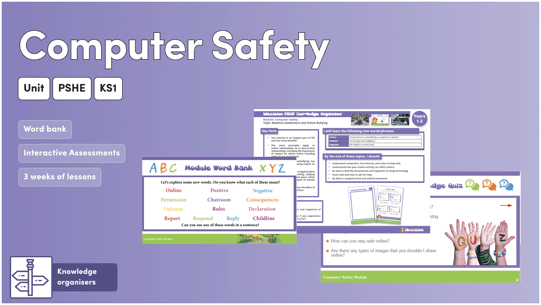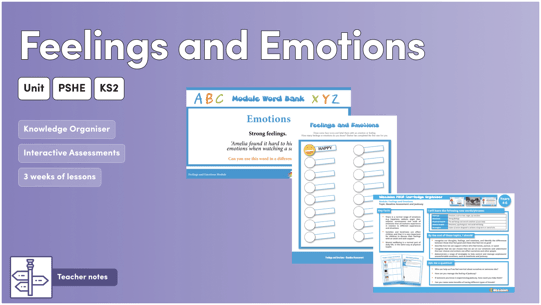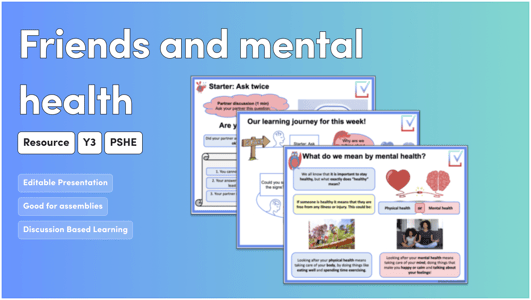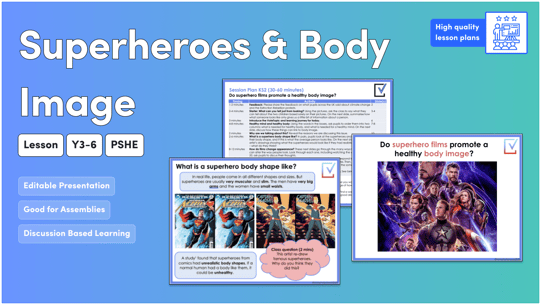How to choose a Primary PSHE scheme of work

Since September 2021, schools have been legally required to teach Relationships, Sex (secondary only) and Health Education (RSHE) to all children. These areas are all part of PSHE education and there is an expectation that they will be delivered as part of a wider PSHE education programme. In primary schools this will often include Citizenship education as well. Primary schools can also decide if they wish to teach age-appropriate sex education.
Many schools have been teaching PSHE education for years and recognise the important role it plays in a broad and balanced curriculum. The Ofsted inspection framework reinforces this, with PSHE education playing a significant role in the requirements for personal development. Despite its importance, some schools struggle to deliver high-quality and engaging PSHE education. In this blog post, we will explore some of the challenges schools face and how having a PSHE scheme of work may help overcome issues and support schools to achieve their desired outcomes.
Why use a scheme of work for PSHE education?
The DfE guidance on PSHE clearly sets out what children are expected to know about various topics by the time they leave primary school. However, what is not so clear is when these topics should be taught and the specific sequence of learning. There is also a requirement in the national curriculum for all schools to teach PSHE education, but there is no programme of study. This lack of clarity has caused issues for some schools about where to start.
As with any subject, having a planned and progressive overview of learning is vital. In PSHE education, children need to build on their existing knowledge and skills to be able to develop their understanding. Having a scheme of work really helps schools to achieve this as there will be a clearly set out, researched, and tried and tested sequence of learning.
Having a PSHE scheme can be a great time saver - we all know how busy teachers are - and spending hours creating bespoke planning for each lesson is not realistic as this will require some specialist subject knowledge and an understanding of what is and isn’t statutory. A scheme of work will provide a strong base for teachers to work from, so they can deliver effective lessons for their class in a sequential and progressive way.
There are two main options for schools in terms of schemes of work:
- schools can write their own or;
- they can buy a commercially produced scheme.
Writing your own scheme can be beneficial as you can tailor it to the needs of the children in your community. To do this you need to consider a number of factors including children’s existing knowledge and understanding, as well as other factors that affect the community you serve, for example socio-economic and health issues - you can find out more about these by looking at local data. Even if you decide to purchase a scheme, these local factors and the needs of the children should still be taken into account when planning and delivering lessons.
Many schools decide to buy a scheme, and this can save time and ensure you are covering everything you need to in an age-appropriate way without the risk of repetition. Let’s find out more about your options when it comes to PSHE schemes of learning.

What to look for in a primary PSHE scheme
If you are going to buy a scheme there are certain things you need to consider.
Progression of skills - it is vital that the scheme progresses children’s learning and does not unnecessarily repeat content. Most schemes will include an overview of topics and show how learning builds to an end point. This is very useful for subject leaders and is handy to have in the event of an Ofsted subject ‘deep dive’.
Coverage of statutory content – it is important that you know which areas of the scheme are statutory and which are not. You can then decide as a school if there are things you want to change without impacting on your legal requirements.
Easy-to-follow planning – PSHE education is a subject where teachers might lack subject knowledge and/or be unsure of pedagogy. A good scheme will include accurate subject information and a range of strategies for teaching PSHE safely including setting ground rules and using distancing techniques.
Length and number of lessons – school timetables are crowded so it is important the scheme fits in with the time you have available. This needs to be balanced to ensure you are giving the subject the time it needs.
Ability to adapt – schemes will often provide a baseline activity to assess children’s current knowledge. This can then be used to adapt lessons to fit the needs of the class. Time should also be given so that additional topics can be covered, or extra time given to certain areas if they are needed in your school.
Inclusion – it is important that children feel represented by the resources used in the scheme. Think about the make-up of your school community and consider if all children will see themselves in the lessons. Factors you may wish to consider include race, religion, sexual orientation and disability.
Assessment – consider if the scheme includes activities to enable teachers to assess children’s learning. It is also useful if self and peer-assessment activities are included.
Support for staff – does the scheme include any CPD for staff? This could take many forms including signposting to reliable information on a topic, background reading or training sessions.
Ability to share materials with parents/carers – the Secretary of State for Education recently wrote to all schools stating they must share materials used in PSHE education lessons with parents and carers if requested. It is important to check that the publisher of your scheme allows you to do this.
What are the best primary PSHE schemes of work recommended by Pango?
A wide range of schemes of work are available for PSHE education. You can access some PSHE schemes of work through Pango including:
1Decision provides a current, engaging and kite-marked PSHE and RSHE scheme of work for KS1 and 2. Each lesson uses an alternative ending video to teach pupils about consequences. Other features include:
- A whole-school approach to RSHE & PSHE
- Clear statutory mapping & coverage
- Designed by PSHE & safeguarding experts
Votes for Schools are focused on giving young people the power to change the world through engaging PSHE lessons. The lessons draw on current issues to engage pupils. Other features include:
- Hundreds of timely and relevant PSHE lessons
- Encourage pupils to form opinions on real-world topics
- Great for use in assemblies
In addition, the PSHE Association are the nationally recognised organisation for PSHE education, and they provide support to develop schemes of work. They also have a programme of study which you can use to develop your own scheme.
The above information could also be used to explore other providers and decide which scheme is right for your school.






